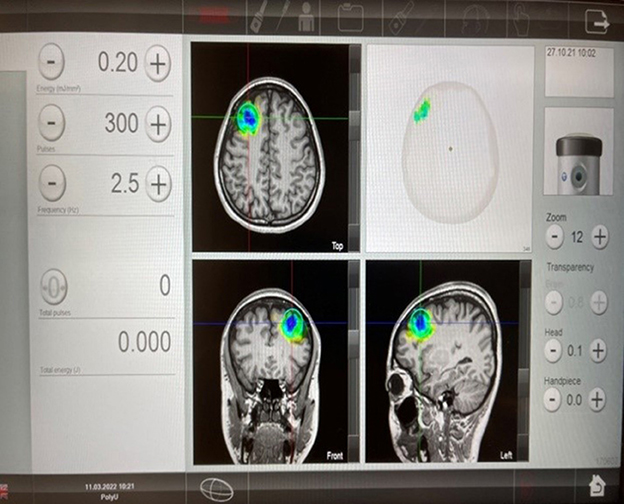
27
diciembreSome People Excel At ADHD Productivity Planners And a few Do not - Which One Are You?
While many individuals may benefit from dietary changes or supplements, it’s essential to approach these options with a critical eye. For example, instead of a lengthy to-do list, individuals can create a daily checklist that outlines only the most critical tasks for the day.
Additionally, consulting a healthcare professional before beginning any new supplement regimen is crucial to avoid potential interactions with existing medications.
In recent years, the conversation around Attention Deficit Hyperactivity Disorder (ADHD) has evolved significantly, shifting from mere diagnosis to an exploration of effective management strategies.
In conclusion, exercise routines offer a promising avenue for managing ADHD symptoms, supporting mental health, and fostering a sense of accomplishment.
However, many individuals are seeking alternative solutions to improve focus and reduce the challenges associated with ADHD. Research indicates that omega-3 fatty acids, commonly found in fish oil, may enhance cognitive performance and reduce symptoms in some individuals with ADHD.
By encouraging them to voice their preferences and needs, caregivers can help design routines that feel more personalized and achievable.
ADHD affects millions of people worldwide, impacting their ability to concentrate, organize tasks, and follow through with projects.
This quest has led to a burgeoning interest in various focus boosters, ranging from supplements to lifestyle changes. One of the most widely discussed categories of focus boosters is dietary supplements.
In conclusion, understanding the emotional regulation challenges associated with ADHD is vital for fostering a supportive environment for individuals affected by the disorder.
Not all supplements are created equal, and the efficacy of nootropics can vary widely from person to person. Many individuals with ADHD struggle with insomnia and restless nights, and the calming effect of a weighted blanket can create a conducive environment for relaxation. Encouraging individuals to listen to their bodies and https://portal.virtueliving.Org/profile_info.php?id=511460 minds and modify their schedules as needed can foster resilience and self-awareness.
Among these strategies, "focus boosters" have emerged as a popular topic, offering new hope for individuals struggling to maintain attention and enhance productivity.
In addition to dietary supplements, the rise of nootropic substances—often referred to as "smart drugs"—has sparked interest among those seeking improved focus. Despite the promise that these focus boosters offer, experts urge caution. In conclusion, sensory-friendly tools are transforming the lives of those with ADHD, enabling them to manage their symptoms more effectively and improve their overall well-being.
While caffeine is a well-known stimulant that can temporarily boost alertness, L-theanine, an amino acid found in green tea, is praised for its calming effects, potentially countering the jitteriness often associated with caffeine.
Compounds like caffeine, L-theanine, and Rhodiola rosea have been touted for their ability to enhance mental clarity and concentration.
While structure is vital, it is equally important to allow for adjustments when necessary. By addressing these emotional needs, society can help individuals with ADHD thrive, leading to improved relationships, academic success, and overall quality of life.
Moreover, involving individuals with ADHD in the creation of their routines can lead to greater buy-in and motivation.
This collaborative approach not only empowers individuals but also teaches them essential skills in self-management. Flexibility is also an essential component of ADHD-friendly focus strategies routines. Weighted blankets are yet another tool gaining traction among those with ADHD. Life can be unpredictable, and having the ability to adapt a routine can help prevent feelings of frustration and failure.
Research has shown that deep pressure stimulation, often provided by these blankets, can lead to reduced anxiety and improved sleep quality.
Meanwhile, zinc and magnesium deficiencies have been linked to ADHD symptoms, prompting some to explore supplementation as a means of alleviating their challenges. As awareness grows, it is imperative that we continue to advocate for comprehensive approaches that consider the emotional well-being of those with ADHD, paving the way for a more empathetic and informed society.
One key aspect of an ADHD-friendly routine is simplicity. This not only makes the workload feel less intimidating but also instills a sense of accomplishment as each item is crossed off. As we continue to explore holistic approaches to this complex disorder, the power of physical activity stands out as a beacon of hope for many seeking balance and focus in their lives.
Complicated schedules can be daunting, so it is essential to break down tasks into manageable parts.
Substances such as omega-3 fatty acids, zinc, magnesium, and certain vitamins have garnered attention for their potential benefits in promoting brain health and cognitive function. Traditional treatment options, including medication and behavioral therapy, have long been the mainstay for managing symptoms.
 With continued innovation and awareness, the future looks bright for individuals striving to navigate the complexities of ADHD in a sensory-overloaded world.
With continued innovation and awareness, the future looks bright for individuals striving to navigate the complexities of ADHD in a sensory-overloaded world.
Reviews